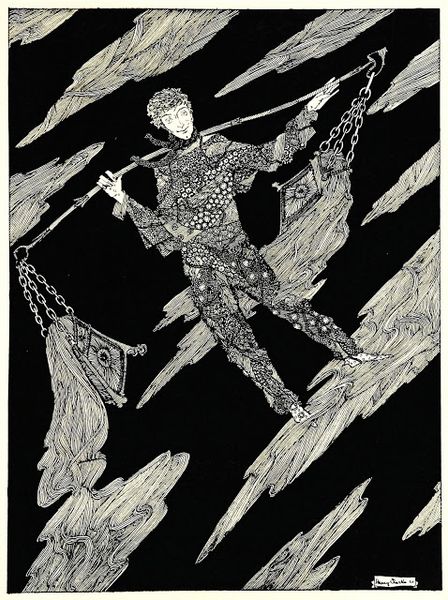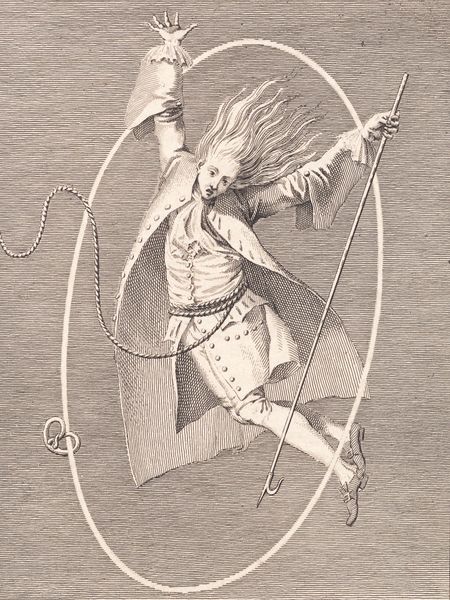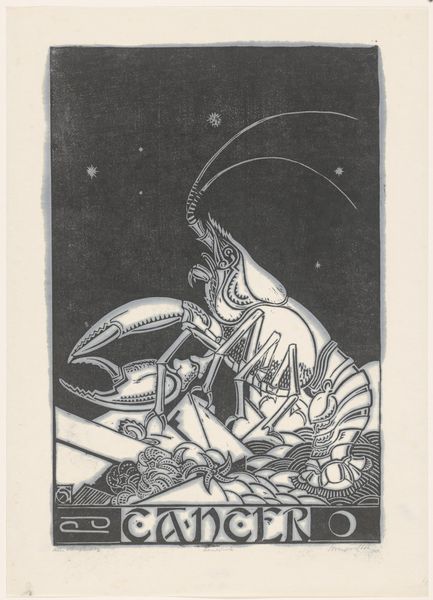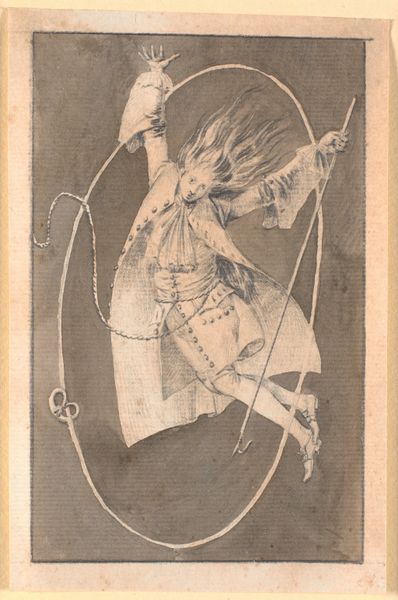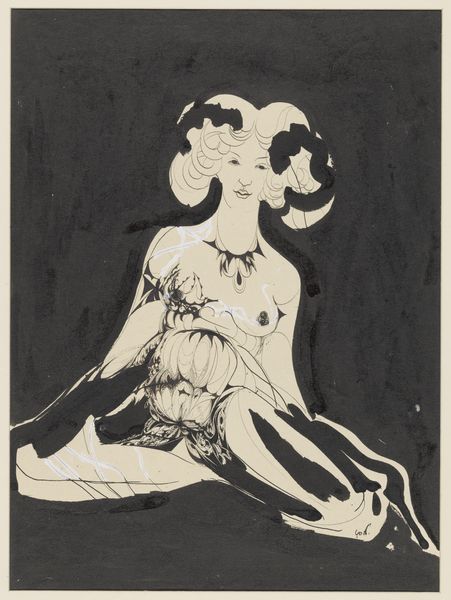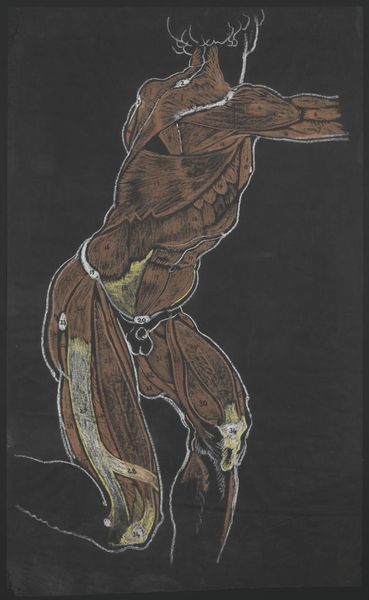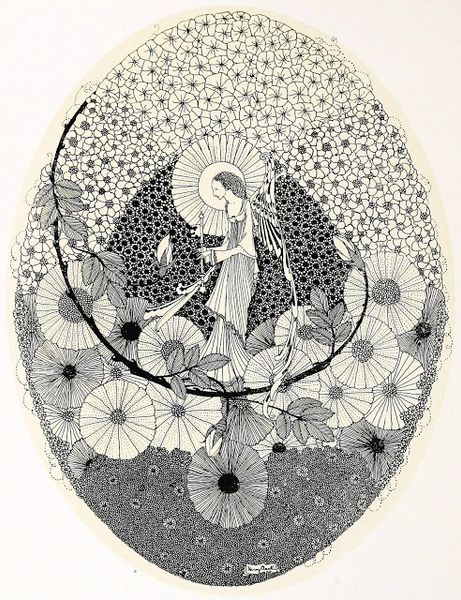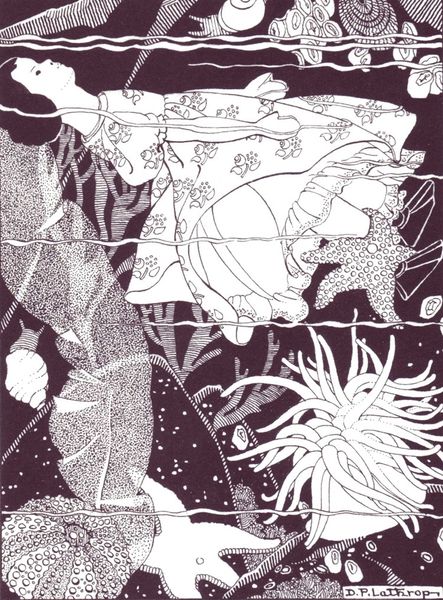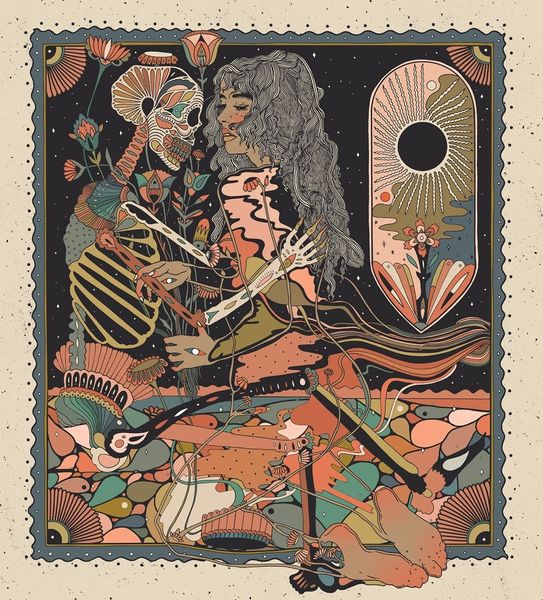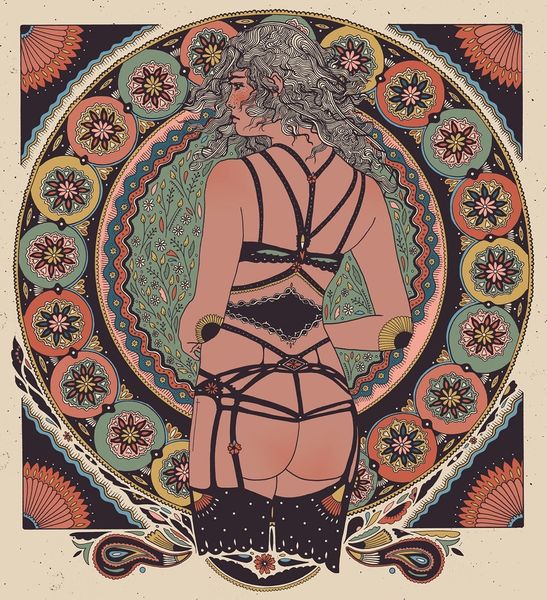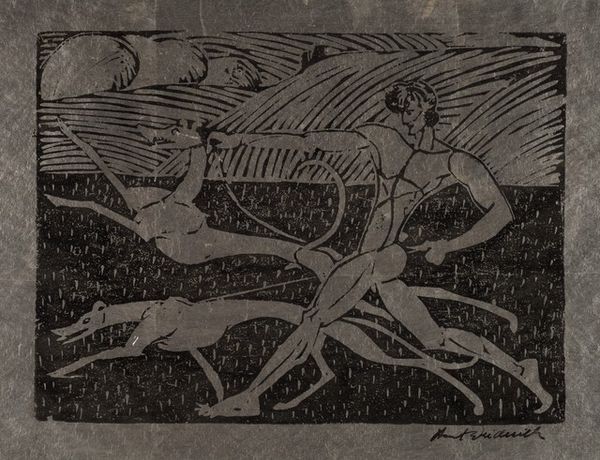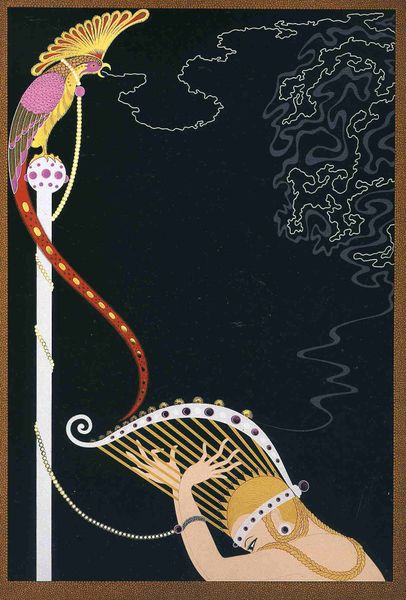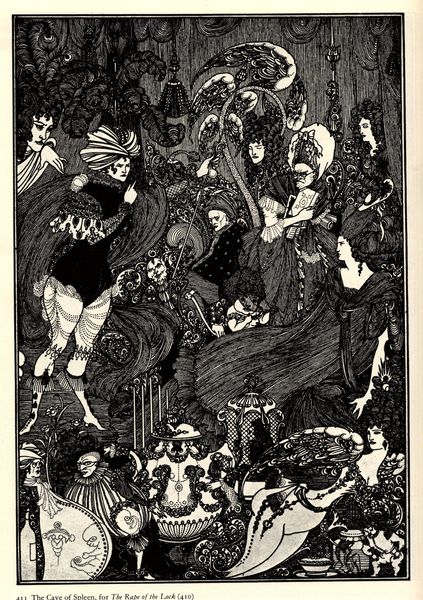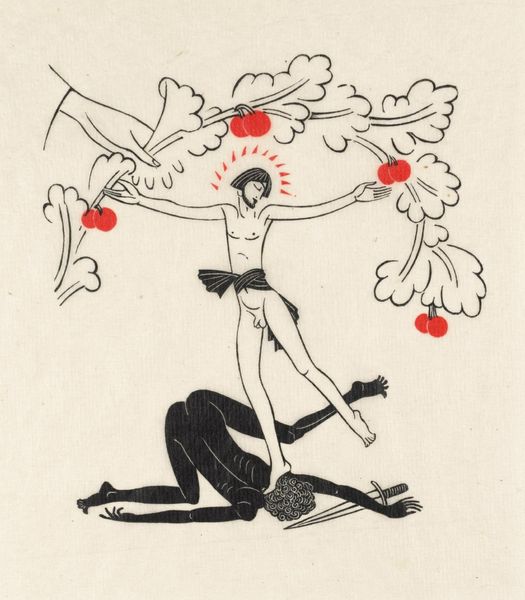
graphic-art, print
#
graphic-art
#
art-nouveau
# print
#
figuration
#
flat colour
#
linocut print
#
nude
Copyright: Public domain
Curator: This is George Barbier’s 1913 print of Vaslav Nijinsky, capturing the ballet dancer in mid-flight. I’m immediately drawn to the starkness of the contrast against this impenetrable black. Editor: It feels almost ghostly, doesn’t it? As though Nijinsky is a spirit momentarily captured on paper. The fluidity of the figure, suspended, with these crisp Art Nouveau lines! It almost makes me feel like I am moving. Curator: Absolutely! Barbier’s masterful command of the linocut medium creates an otherworldly effect. Think about it – Barbier’s precise cutting of the linoleum dictates every curve and edge, a craft that demands exacting precision. The very process suggests a transformation. Editor: Yes, linocut implies a type of removal; what’s left behind *is* the image. Look at the patterned costume: all those intricate little dots, perfectly rendered…and the paper *is* the dancer’s pale skin. There's a strong interplay between revealing and concealing. Curator: What's especially interesting, too, is the Orientalism evident in the image, a theme prominent at the time—see those drooping willow branches. It’s hard not to also see this image, created shortly before the start of World War I, as evoking a profound yearning. Editor: I hadn’t thought of that, but I think you’re onto something. Beyond the grace and apparent exoticism, I see this image as a delicate construction of paper and ink; fragile yet resilient, capturing the ephemeral spirit of dance but also, a world on the cusp of collapse. Curator: A world transformed. It really captures the fleeting moment but the enduring legacy of Nijinsky’s own artistic genius. Editor: Absolutely. And it reminds us that even the most seemingly delicate materials can carry the weight of history and profound human experience.
Comments
No comments
Be the first to comment and join the conversation on the ultimate creative platform.
